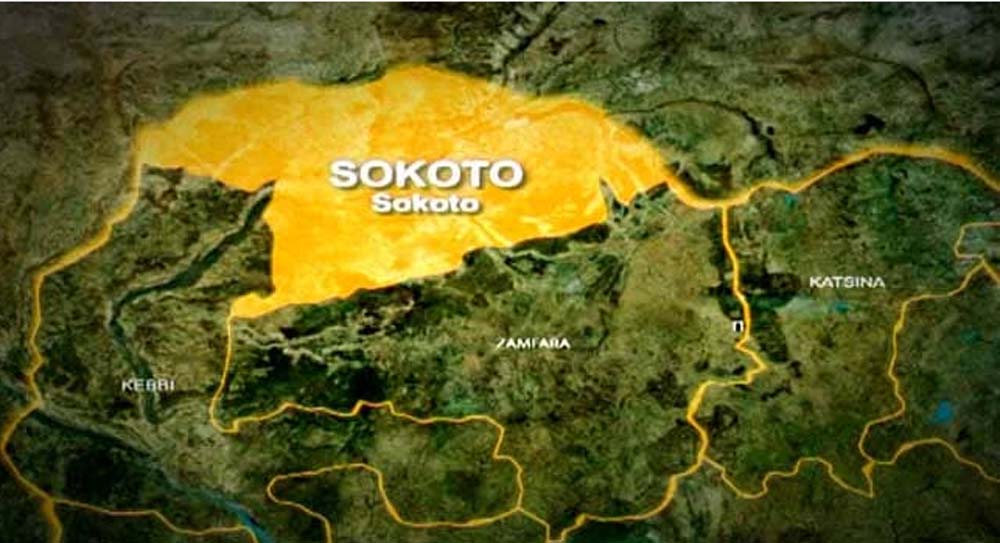NEWS
NNPCL Reports 37.2% Revenue Surge In 2022

The Nigerian National Petroleum Corporation Limited (NNPC Ltd) has unveiled its latest Audited Financial Statement (AFS), showcasing an extraordinary 37.2% increase in revenue.
The figures skyrocketed from N6.42 trillion in 2021 to an impressive N8.81 trillion in 2022, marking a significant milestone for the corporation.
The AFS, the fourth in a series since NNPC’s inception in 1977, reveals a jaw-dropping Profit After Tax (PAT) of N2.52 trillion.
This translates to an astounding 274% growth compared to the N674 billion recorded in the previous year, solidifying NNPCL’s financial prowess in the industry.
Delving into the corporation’s financial landscape for the year ending December 2022, the audited statement lays bare a formidable total asset base of N58.65 trtrillion which includes N37 trillion in non-current assets and N21.59 trillion in current assets.
The remarkable financial trajectory continued with a staggering 260.47% increase in total assets, reaching N58.65 trillion in 2022 compared to N16.27 trillion in 2021.
However, this prosperity was met with a proportional rise in liabilities, as non-current liabilities reached N19.98 trillion, and current liabilities surged to N29.3 trillion, resulting in a total of N49.35 trillion by the end of 2022—an increase of about 266.6% from N13.46 trillion in 2021.
The Audited Financial Statement (AFS) further sheds light on other crucial financial aspects, such as deferred tax liabilities at N13.23 trillion, deferred tax assets at N3.098 trillion, and a notable increase in the cost of sales, climbing to N6.7 trillion in 2022—a 25.47% rise from N5.34 trillion in 2021.
Despite these substantial changes, the AFS emphasized the auditors’ confidence in NNPCL’s financial stability.
For the 16-month period ending December 2022, they expressed no doubts about the NNPC’s ability to continue as a going concern, dispelling concerns of bankruptcy.
The auditors, in their notes to the 2022 Audited Financial Statement (AFS), affirmed that the financial statements were prepared following the going concern principle under the historical cost convention.
They stated, “Nothing has come to the attention of the directors to indicate that NNPC will not remain a going concern for at least 12 months from the date of these financial statements.
“At this time, no significant events after the reporting date that may have an impact on going concern have been noted.”
NEWS
I’ll Remain In Custody Until The Joke Is Over – Sowore Rejects Bail
Human rights activist, Omoyele Sowore has rejected the bail conditions set by the Nigeria Police Force (NPF) following his invitation for questioning over a viral video he posted, which highlighted alleged extortion by police officers on the Murtala Muhammed International Airport Access Road in Lagos.
In a post on his X account on Monday, Sowore stated, “I have rejected a bail condition asking me to present a level 17 Permanent Secretary. Instead, I have offered to remain in police custody pending when the joke is over with.”
This came after Sowore was informed by the Deputy Inspector General of Police at the Federal Intelligence Department (FID) that bail would be granted pending the completion of the investigation into the matter.
READ MORE: Lawmaker Introduces Bill To Allow Trump A Third Presidential Run
The police have charged Sowore with multiple offenses, including resisting and obstructing public officers, disobedience to lawful orders, acts intended to cause harm, cyberstalking, and refusal to assist public servants.
This follows his recording of a video in which he confronted officers allegedly setting up roadblocks for the purpose of soliciting bribes.
Sowore’s decision to reject the bail conditions stemmed from his refusal to accept terms that he deemed unreasonable and compromising.
“I have also advised the DIG that in accepting ‘bail,’ I will not agree to conditions that compromise my innocence, dignity, and integrity. If such unreasonable conditions are imposed, I will choose to remain in detention until I am charged to court,” he added.
Sowore further criticized the investigation, calling it an exercise in impunity and asserting that no crime had been defined in relation to his case.
Earlier, Sowore revealed that he had completed his “interview” with the police at the Force Intelligence Department (FID) in Abuja, where he was questioned about the viral video. “
The police relied on a rehashed set of information sourced mostly from the internet,” Sowore explained.
When he asked them to identify the location of the alleged crime, they provided a vague response, mentioning only the airport road. He chose not to provide a written statement, noting that in the absence of a defined crime, there was no need for such a process.
Sowore also reported that the police took a break during the session, later informing him that they were awaiting further instructions from higher authorities.
He expressed concern that the police were planning to take him to Lagos for a “kangaroo trial.” “It seems their plan is to detain me and take me to Lagos for a kangaroo trial. However, I am prepared to face any consequences,” he said.
In a direct challenge to the leadership of the Nigerian police, Sowore reiterated his stance against the current Inspector General of Police, Kayode Egbetokun, whom he accused of extending his tenure illegally.
“I made it clear to the team that the matter revolves around my publicly stated view that the Inspector-General of Police, Kayode Egbetokun, who is due for retirement and clearly tired, had his tenure extended illegally,” Sowore stated.
Despite the mounting pressure, Sowore remained resolute, asserting that his fight for justice would continue.
“We are entering a promising year, and our fight for justice will persist,” he concluded, with the hashtag #RevolutionNow, further solidifying his commitment to advocating for human rights and challenging the impunity within Nigeria’s police force.
NEWS
Sokoto Commences Payment Of N70,000 Minimum Wage

The Sokoto State Government, led by Governor Ahmed Aliyu, has announced the implementation of the revised N70,000 national minimum wage for all state civil servants, local government employees, and the Local Government Education Authority.
This new policy will take effect on Monday, signaling a significant step towards improving workers’ welfare in the state.
Governor Aliyu, in a statement issued by his Press Secretary, Abubakar Bawa, emphasized that the new minimum wage reflects his administration’s commitment to ensuring the well-being of Sokoto’s workforce.
READ MORE: Tinubu Urges Stakeholders To Join Forces To Restart Oil Production In Ogoniland
He also encouraged civil servants to match the gesture with greater dedication, professionalism, and hard work.
“With the commencement of the payment of this new national minimum wage, we expect renewed commitment, hard work, punctuality, and, above all, seriousness from our civil servants,” the governor remarked.
Aliyu also reassured workers that his administration is committed to maintaining timely salary payments, with salaries to be paid between the 19th and 22nd of each month.
This consistent schedule is designed to further solidify Sokoto State’s reputation as a worker-friendly administration.
In addition to the new wage policy, the governor has placed a high priority on clearing the backlog of unpaid gratuities owed to retired workers.
A total of N500 million will be allocated monthly to offset these outstanding payments, with an additional N300 million designated for retirees who left service in 2023 and beyond.
Governor Aliyu assured the public that by the end of his tenure, no civil servant would be left owing gratuities.
“This strategic approach ensures that by the end of my administration, no civil servant will be owed gratuities,” Aliyu stated, highlighting the stark contrast with previous administrations where salary delays often stretched beyond 50 days, leaving workers facing financial uncertainty.
NEWS
‘Corruption Fighting Back’ – Kano Anti-Corruption Boss Speaks On Arrest

Muhuyi Rimingado, the Chairman of the Kano State Public Complaints and Anti-Corruption Commission (PCACC), has accused a suspect under his agency’s investigation of orchestrating his recent arrest.
Rimingado, who was detained last week, described the incident as a direct consequence of his work in tackling corruption, asserting that “corruption is fighting back.”
Appearing as a guest on Channels Television’s The Morning Brief programme on Monday, Rimingado explained that the arrest was part of a larger attempt to undermine his efforts.
READ MORE: ‘I Won’t Back Down On Exposing Corruption On JAMB,’ – Ex-Official Tells Court
“When you fight corruption, corruption will fight back. Anti-corruption fight (is) fair but corruption fight is dirty,” he said.
Rimingado revealed that three federal agencies had been mobilized against him, alleging that “there are lots of activities going around targeted against my person.”
He connected the arrest to an investigation into a massive fraud case involving the former Managing Director of the Kano Agricultural Supply Company Limited (KASCO).
According to Rimingado, his commission uncovered that N4 billion of Kano State Government funds had been siphoned through various entities.
As part of the investigation, his commission seized assets linked to the crime in accordance with legal procedures. After charging the accused to court, Rimingado said the suspect sought to unlawfully seize the evidence.
“He came up with a series of tactics to snatch away the exhibit of the crime, and that is not allowed in law,” he explained.
To prevent tampering, Rimingado’s commission moved the seized property to a safer location.
He believes that this action prompted the police to arrest him, stating, “When they cannot wait for the court processes and they know they cannot succeed in that case, they now activate the police to arrest me.”
The police officers who detained him accused him of abuse of power, mischief, and trespass, charges Rimingado vehemently denied. “My commission is empowered by law to prosecute suspects of corrupt practices,” he stated.
As of now, the police have not issued any comment on the ongoing developments.
















